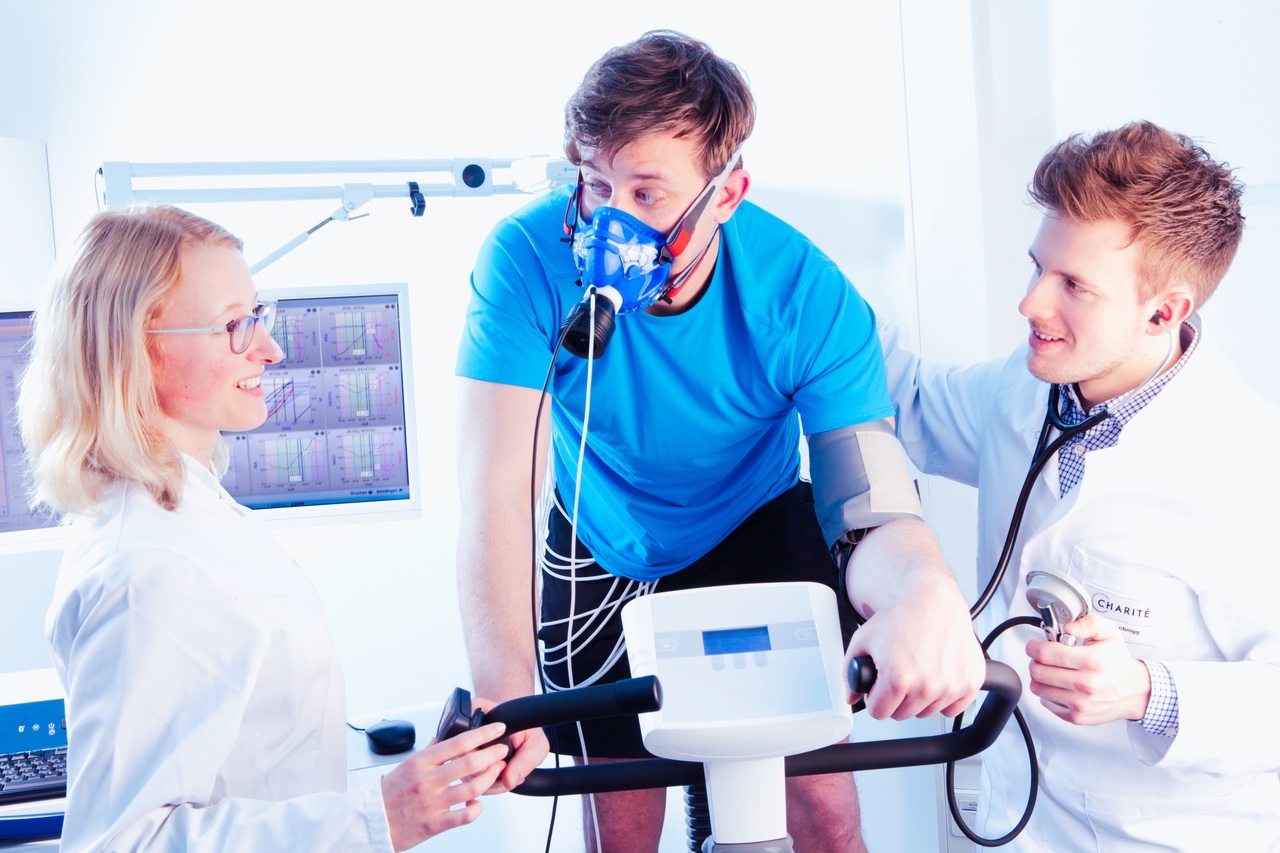For many patients with terminal cardiac insufficiency, a heart transplantation is the only chance of survival. However, there are not enough donor hearts while the number of people who require a new heart is rising. Patients also receive an artificial heart implantation, a so-called left ventricular assist device, in order to bridge the waiting period until transplantation, which is also increasingly used as a long-term solution. The device is an electrical pump that is placed directly next to the heart and directs blood from the left ventricle into the aorta. Batteries, which are carried externally, supply the assist device with power.
Immediately after the implantation of an artificial heart, patients are in an extremely poor physical state. “The patient’s condition does indeed improve during the first three months following the operation, but then reaches a steady state in which the condition stabilises at a constant but usually low level”, says Prof. Frank Edelmann, one of the principle investigators at Charité - Universitätsmedizin Berlin.
Transfer positive experiences
With the DZHK study Ex-VAD, the scientists now want to examine whether patients with an artificial heart would benefit from physical exercise. Their surgery should date back at least three months. “We know from studies in patients with chronic cardiac insufficiency how much of a positive effect such a workout has on physical performance and thus also on quality of life”, explains Edelmann. “We hope this is also the case for patients with an artificial heart, since being physically restricted also affects their mental health. 30 to 40 percent of patients show symptoms of depression.”
Long-term goal: removing artificial hearts
In the study, patients participate in a moderate training programme for twelve weeks. They train three times per week on a bicycle ergometer and after four weeks tailored strength training is added to their exercise plan. Alongside physical fitness, biomarkers in the blood and examinations of the heart function and structure the trial will also reveal how the study participant’s quality of life changes in the process. Furthermore, once the exercise phase is completed, they will be regularly examined for a further twelve weeks in order to measure long-term effects.
“We hope that the natural heart’s performance will also improve with regular physical exercise, since our long-term goal is to strengthen the individual’s own heart in such a way that the artificial heart can be removed after a certain period of time”, Edelmann says, looking ahead.
In addition to Berlin, the DZHK sites Hamburg and Munich are also participating in the pilot study. If the positive expectations of the scientists are confirmed, large-scale multi-centre studies must substantiate the effects of physical exercise before it can find its way into the treatment guidelines of these patient groups.
Study: Exercise Training in Patients with Left Ventricular Assist Device Ex-VAD
Principle investigator:
Prof. Dr. med. Frank Edelmann, Charité - Universitätsmedizin Berlin, Department of Cardiology, Campus Virchow Klinikum, frank.edelmann(at)charite.de
Prof. Dr. med. Burkert Pieske, Charité - Universitätsmedizin Berlin, Department of Cardiology, Campus Virchow Klinikum
Prof. Dr. med. Martin Halle, Technical University of Munich, Preventative and Sports Medicine Professorship, Klinikum rechts der Isar
Prof. Dr. med. Volkmar Falk, German Heart Centre Berlin, Department of Cardiothoracic and Vascular Surgery
Study coordination:
Dr. med. Anna Bobenko, Charité - Universitätsmedizin Berlin, Department of Cardiology, Campus Virchow Kliniku, E-Mail: anna.bobenko(at)charite.de
Doris Bach, MSc MSc, Charité - Universitätsmedizin Berlin, Department of Cardiology, Campus Virchow-Klinikum, E-Mail: doris.bach(at)charite.de
Contact:
Christine Vollgraf, Public Relations Officer, German Centre for Cardiovascular Research (DZHK), phone: +49 30 3456 52902, presse(at)dzhk.de

